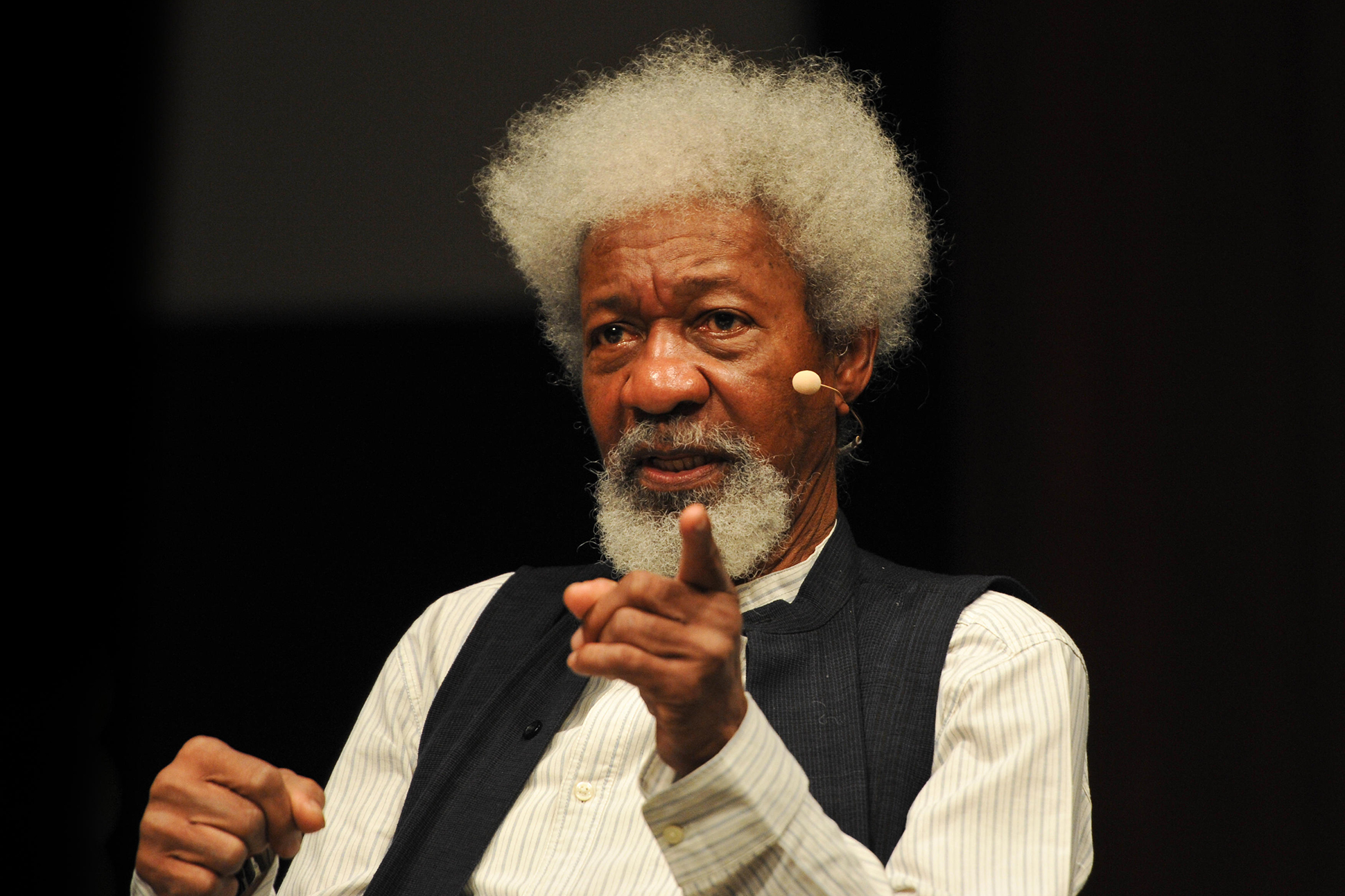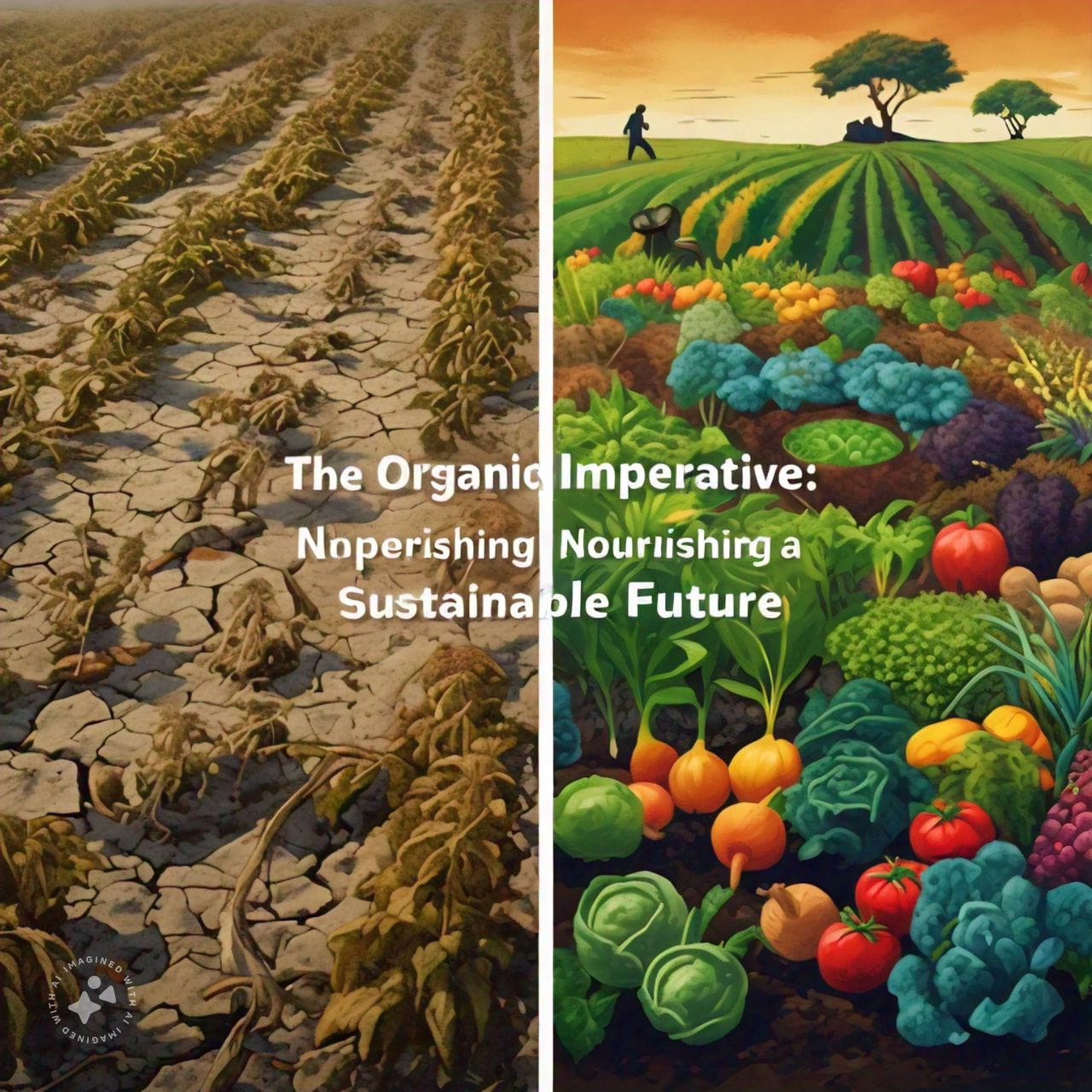Perspectives With Dr. Iyke Ezeugo
Taking into account the ubiquitous challenges individuals face in regulating their appetites, consuming unappealing foods, and accepting medications and bitter pills with unknown or uncertain composition, sources, or unintended consequences when pressed, I am compelled to take a bite on this side of the organic agriculture and food safety sandwich I have been caressing, although it diverges from my originally intended trajectory.
Hippocrates, often regarded as the "Father of Medicine," left behind an enduring legacy with his profound aphorism: “Let food be thy medicine, and medicine be thy food.” This deceptively simple idea is as pertinent today as it was in 400 BCE when he advocated for a holistic approach to health in ancient Greece. At its core, Hippocrates’ philosophy emphasizes the intrinsic connection between nutrition and health, urging us to view food not only as sustenance but as a vital tool for maintaining balance in the body. This wisdom transcends time, inspiring us to reconsider our approach to food and well-being.
The Core of Hippocrates' Message
In his famous assertion, “Let food be thy medicine, and medicine be thy food,” Hippocrates emphasized the idea that food is a powerful tool for maintaining health and preventing illness. He suggests that we should approach food with the same care, caution, and purposefulness as we do medicine, recognizing that wholesome and right kinds of food can nourish and heal our bodies. This makes medicine less necessary when food is used as a preventive measure.
However, Hippocrates also acknowledges that when illness strikes, medicine plays its role, but food should still support the healing process, complementing medical interventions. His idea is not about discarding medicine but recognizing the profound impact that nutrition has on overall well-being.
Diverse Food Behaviors and Personal Reflection
When considering how individuals approach food, we can categorize them into different types—careless eaters, gluttons, picky eaters, and those with a sweet tooth. Each of these behaviors reflects a deeper disconnection from food as a medicinal tool, but also provides an opportunity for change.
• *Careless Eaters:8 Often unconcerned with the quality or composition of what they consume, they need to be educated on the long-term impacts of processed and chemical-laden foods. Introducing healthier, easy-to-make alternatives—wholesome foods rich in nutrients but light on artificial additives—can help them see food as preventive medicine.
• Gluttons: These individuals overeat, much like one might overuse a medicine to harmful effect. Teaching portion control and the benefits of mindful eating, such as the "half-plate" rule—where half the plate is filled with vegetables, while the remaining half is divided between proteins and grains—could prevent the overconsumption of foods that lead to obesity, high blood pressure, and diabetes.
• Picky Eaters: Reluctant to try new or unfamiliar foods, they often miss out on nutrient-dense options. Encouraging them to diversify their meals with a variety of fruits, vegetables, and whole grains will help balance their diet and provide the body with the tools it needs to prevent illness. Like medicine, food diversity is key to a holistic health approach.
• Sweet Tooth Enthusiasts: These individuals are prone to excessive sugar consumption, leading to long-term health issues like diabetes. Replacing refined sugars with natural sweeteners such as honey or fruit would allow them to enjoy sweetness while mitigating its harmful effects.
By connecting these categories of eaters to Hippocrates’ philosophy, you can encourage yourself to recognize your own habits and make small, actionable changes that will transform food from mere sustenance to a tool for healing and prevention.
Bridging Food with Medicine in the Nigerian Context
Every agricultural landscape, more especially the Nigerian landscape offers a wealth of foods that align with the medicinal philosophy of Hippocrates. From the bitter leaf, known for its detoxifying and anti-inflammatory properties, to Ogbono soup, rich in fiber and beneficial for digestive health, traditional Nigerian dishes are not only nutritious but also healing. These are few examples of how food can simultaneously nourish and remedy ailments.
Sadly, the unconscious shift towards GMOs, Chemicalization in Cultivation, and processed foods, laden with process lines chemicals and preservatives, has distanced Nigerians from these natural remedies. Suya, for example, once a wholesome street food, is now often over-seasoned and preserved with unhealthy additives, contributing to lifestyle diseases. Returning to simpler preparation methods using fresh, locally sourced ingredients would restore these foods to their original role as both nourishment and medicine. These only but a few examples!
How can I as a person engage to act rightly and benefit?
Hippocrates' message encourages deliberate eating. Each meal should be chosen with care, much like medicine, mindful of its quality, quantity, source, preparation, consumption protocol, timing and potential effects on the body. One way for you to reconnect with this wisdom is by keeping a food journal. For one week, you can track how you feel after eating different types of meals in a particular manner, noting physical and emotional changes.
No matter the situation, overeating is an absolute NO! It's not the bloated discomfort in your stomach that should tell you when to stop, just as you wouldn’t take medicine until it spills out of your mouth. The principle of moderation is critical, regardless of how tempting the meal may be or how strong your hunger feels. Learning to stop before you reach the point of excess is vital for maintaining health and balance. Furthermore, you shouldn’t choose certain foods solely because they taste good while dismissing others for being less appealing. As long as the food is wholesome, and you understand its components, nutritional benefits, possible side effects, and how well your body handles it, consume it moderately and observe how your body reacts. Balance is essential, and recognizing your body's needs will guide you toward better and healthier decisions. This simple step would deepen their understanding of the direct link between food and well-being.
Tying It All Together
Hippocrates’ aphorism, “Let food be thy medicine,” serves as a timeless reminder that what we eat directly influences our health. In modern times, this means consciously choosing foods that nourish the body and soul, fostering a holistic approach to health that can prevent illness before it starts.
As we reflect on the wisdom of Hippocrates, we must also acknowledge the rich potential of Nigerian traditional foods to serve as medicine. In a world increasingly dominated by processed, chemical-laden products, and Genetically Modified foods, returning to whole, natural, and nutritious meals is the key to reclaiming our health. The foundation of tomorrow’s wellness is built on today’s food choices.



















